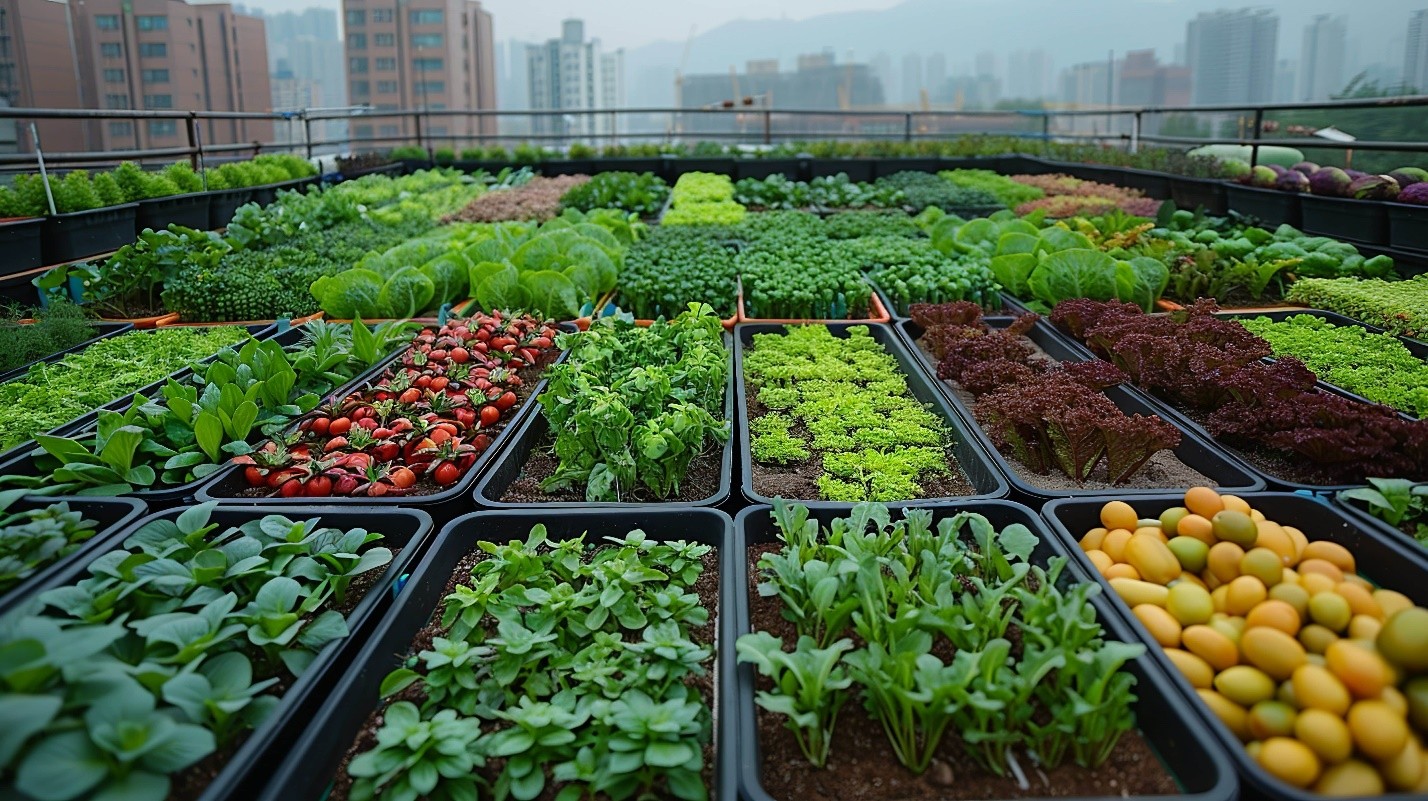Urban agriculture is reshaping how cities grow, consume, and connect with food. In New Jersey, a state often associated with sprawling suburbs and busy cities, this movement is particularly significant. As urban populations grow and land becomes scarcer, innovative solutions like rooftop farms and community gardens are stepping in to bridge the gap between fresh, locally sourced food and the people who need it most. According to Tim Kealy of NJ, these projects provide more than sustenance; they cultivate stronger communities and a more sustainable future.
A Green Revolution Above and Between the Concrete
Rooftop farms and community gardens are not just spaces for growing vegetables; they are catalysts for transformation. In New Jersey’s densely populated cities, rooftops offer an underutilized resource that can be turned into fertile ground for food production. These elevated farms provide fresh produce to urban centers while simultaneously reducing the carbon footprint associated with transporting goods from rural areas.
Community gardens, on the other hand, bring agriculture back to the ground level, embedding it into the heart of neighborhoods. They offer residents access to fresh fruits and vegetables, often in areas known as food deserts where access to healthy food is limited. Beyond this, they serve as gathering places where neighbors meet, collaborate, and strengthen their bonds, turning vacant lots into vibrant hubs of activity.
The Economic and Environmental Impact of Urban Agriculture
Urban agriculture also plays a critical role in boosting local economies. Rooftop farms create job opportunities, from urban farming technicians to delivery drivers, while supporting local restaurants and markets. Similarly, community gardens can be managed cooperatively, allowing participants to sell surplus produce or use it to reduce grocery expenses. These initiatives often inspire further investment in local food systems, fostering a circular economy where communities thrive together.
The environmental benefits of urban agriculture are equally significant. Rooftop farms reduce urban heat islands by cooling the buildings beneath them, lowering energy costs and mitigating the effects of climate change. They also manage stormwater by absorbing rainfall that would otherwise overwhelm city drainage systems. Community gardens, meanwhile, improve soil health and biodiversity while reducing food waste through composting initiatives.
Challenges Facing Urban Agriculture in New Jersey
Despite its promise, urban agriculture faces challenges that must be addressed to realize its full potential. In New Jersey, high real estate costs and zoning regulations can limit the availability of suitable spaces for farming. Additionally, rooftop farms require significant upfront investment in infrastructure, such as irrigation systems, soil, and plant support structures, which can deter smaller-scale initiatives.
For community gardens, issues like soil contamination and vandalism pose risks. Many urban plots have histories of industrial use, leaving behind pollutants that make them unsafe for food production. While raised beds and imported soil can mitigate these concerns, they add to the costs and logistical complexity of establishing a garden.
Building a Foundation for Growth
Overcoming these challenges requires collaboration between policymakers, local organizations, and residents. Municipal governments in New Jersey have started to embrace urban agriculture by revising zoning laws, offering grants, and creating programs that support these initiatives. Public-private partnerships also play a crucial role, with companies investing in green infrastructure and community development projects.
Education and outreach are equally important. By teaching urban residents about sustainable growing practices, composting, and the health benefits of fresh produce, communities can build the knowledge and skills needed to sustain these projects long-term. Local schools, in particular, can act as hubs for urban agriculture, incorporating gardens into their curricula and inspiring the next generation of farmers.
A Vision for New Jersey’s Urban Agriculture Future
As New Jersey looks to the future, the potential for urban agriculture to reshape the state’s cities is immense. Rooftop farms could become standard features on commercial and residential buildings, contributing not only to food production but also to urban aesthetics and air quality. Community gardens might expand into larger cooperative networks, sharing resources and knowledge across neighborhoods to maximize their impact.
Technology will likely play a pivotal role in this evolution. Innovations like vertical farming, hydroponics, and aquaponics are making it possible to grow food efficiently in confined urban spaces. By integrating these technologies into existing and new urban agriculture projects, New Jersey can lead the way in demonstrating how cities worldwide can achieve food security in sustainable ways.
Cultivating Community and Resilience
Ultimately, the success of urban agriculture in New Jersey depends on its ability to foster a sense of ownership and pride among participants. Rooftop farms and community gardens are not just about growing food—they are about growing connections, resilience, and a shared commitment to a healthier, greener future. In a state where diversity and innovation thrive, urban agriculture has the potential to bring together people from all walks of life to work toward common goals.
As cities evolve to meet the demands of growing populations and environmental challenges, urban agriculture stands out as a beacon of hope. By embracing these projects, New Jersey can set an example for the nation, proving that even in the busiest urban landscapes, there is room to grow.
